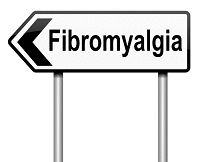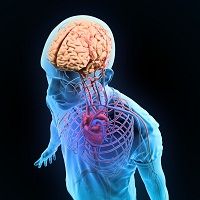Article
What We Learned About Fibromyalgia in 2015
Author(s):
The past 12 months have brought new research on fibromyalgia treatment, comorbidities, and quality of life and made for a promising future.

The past 12 months have brought new research on fibromyalgia treatment, comorbidities, and quality of life and made for a promising future.
It’s no secret that a lot of questions remain about fibromyalgia. The condition can’t be diagnosed with an MRI or even a blood test, so some people doubt that it even exists. But it’s a very real, very disruptive disease for many patients.
Read on to catch up on the key fibromyalgia findings over the past year, and stay up-to-date with the MD Magazine fibromyalgia condition center.

When lead investigatory Brinder Vij, MD, started to notice a pattern of headaches among his patients with fibromyalgia nearly three years ago, he decided to investigate if this theme was more widespread.

Chronic painful conditions can have a significant negative impact on a patient’s quality of life, but are some conditions worse than others? A recent study sought to determine which chronic pain condition creates the biggest burden on patient quality of life.

Not only does poor sleep result in more pain for patients with fibromyalgia, but it is also linked to a lower pain threshold.

Although a seemingly invisible condition, fibromyalgia may have an important connection with mental health symptoms.

Effective treatments for fibromyalgia are notoriously few and far between. A number of studies have shown that gabapentin, developed to treat epilepsy, is effective in treating postherpetic neuralgia and painful diabetic neuropathy. Now, a new — although admittedly limited – study has revealed that gabapentin may hold promise for treating fibromyalgia as well.

While maintaining high levels of physical activity may not appeal to many patients with fibromyalgia, doing so may be the best way to help ease their pain.

While exploring a way to help patients with post-traumatic brain injuries, a collaborative team of researchers discovered that oxygen chamber treatment proved to benefit those with fibromyalgia as well.

Patients with fibromyalgia typically experience widespread chronic pain and a new study adds to the evidence that emotional impact is prominent as well.

Are more patients with newly diagnosed fibromyalgia taking guideline-recommended medications or opioids? The answer may surprise you.

A new study analyzed multiple areas of fibromyalgia including pain, brain characteristics, and medication efficacy, which resulted in some very telling conclusions.

It may be easy to write a prescription for opioids in hopes that they will do the trick for patients struggling with fibromyalgia pain. But the best path towards effective analgesia may not require medication at all.

It’s been well established that patients with fibromyalgia have a poorer quality of sleep, and now a drug is showing positive results in combatting this common symptom.





